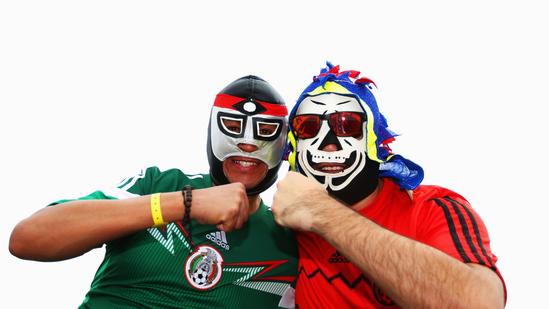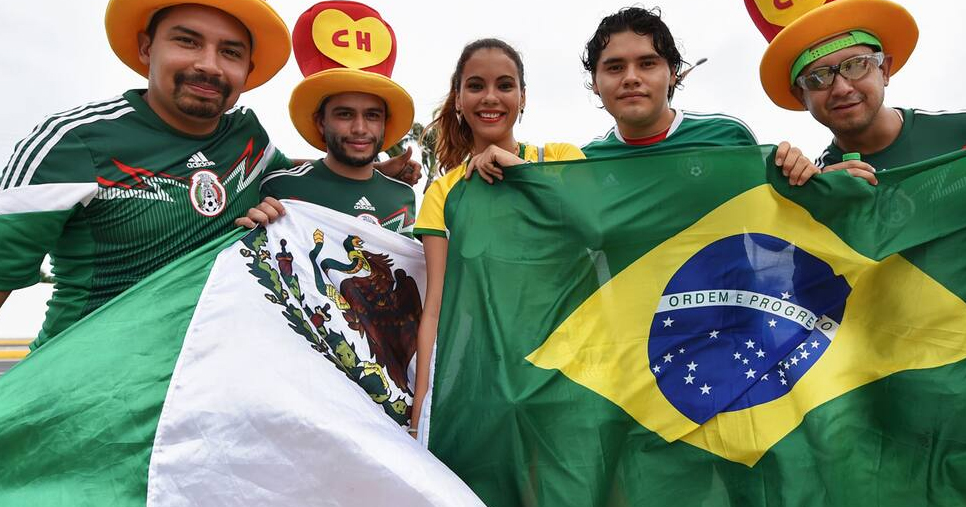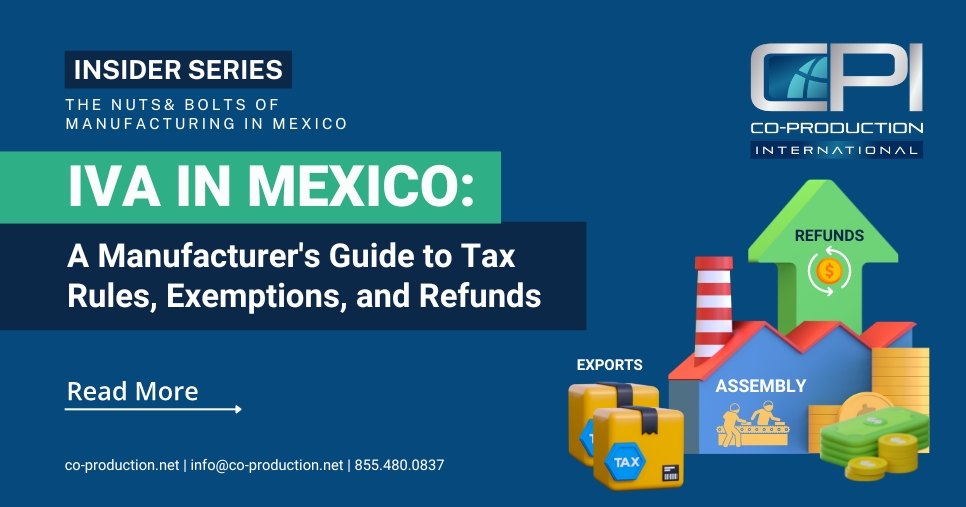Going into the game, Brazil was favored to beat Mexico on Tuesday in the group stage of the FIFA World Cup. The atmosphere had been decidedly friendly as tens of thousands of fans from both sides met in the streets in a lighthearted rivalry.
At the stadium, the chants from the Mexican crowd could be heard rising above those of the Brazilians at times: "Si se puede" ("Yes, we can") and the refrain from the song "Cielito Lindo"—"Ay, ay, ay, ay, canta y no llores" ("Ay, ay, ay, ay, sing and don't cry").
In the end, there was no need for tears from either side. The game ended in a scoreless tie — fitting, perhaps, for two countries who remain locked in another type of competition.
While they are far from direct geopolitical rivals, Latin America's two largest countries, with radically different economic models, have tended to pass back and forth the honor of being considered the region's most exciting growth story, source for foreign investment, and sometimes even the intellectually fashionable way to beat poverty, analysts say.
 "The two countries tend to do well at different points," says Peter Hakim, president emeritus at the Inter-American Dialogue, a Washington think tank that focuses on relations with Latin America, and author of "Two Ways to Go Global," a 2002 Foreign Affairs article on the very different ways the countries sought to build influence.
"The two countries tend to do well at different points," says Peter Hakim, president emeritus at the Inter-American Dialogue, a Washington think tank that focuses on relations with Latin America, and author of "Two Ways to Go Global," a 2002 Foreign Affairs article on the very different ways the countries sought to build influence.
For most of the period since then, Brazil has dominated, growing while Mexico battled a drug war. But recently, the pendulum has shifted in the other direction, as Brazil stagnated in the run-up to the World Cup and Mexico cautiously embraced the prospect of reforms under new President Enrique Peña Nieto.
"There's no doubt that Mexico is now sort of the darling of the investing class," said Hakim.
Despite a shared Latin American identity, the two countries are far apart, not only linguistically (Brazilians speak Portuguese, Mexicans Spanish) and geographically, but economically and politically. Mexico's 120 million people live in an economy that is heavily reliant on trade, especially with the United States, and where state intervention is relatively minor, at least compared to Brazil.
Brazil, on the other hand, with approximately 200 million people, has extensive public participation in the economy and trades relatively little. In recent years, Brazil made a small turn away from the U.S. to trade primarily with another global power, China. I thought this country would be more like Mexico. But it's not, and it seems a lot of the economic boom has been an illusion. - Andre Ayala, 31, a financial analyst from Juárez, Mexico
"The biggest difference between the two countries is clearly that Mexico is intensively integrated to the United States, both economically and demographically," says Hakim. "Brazil has always thought of itself as one of the world's great, independent countries, that would eventually take its place among the countries that shape the world order...and recently this has meant trying to make South America more important in the Western Hemisphere."
The fact that Mexico is so integrated with the United States has surprised many Brazilians in Fortaleza in recent days, as locals were initially confused why some groups of soccer fans in Mexico jerseys spoke to each other in English, or also cheered for the U.S.
My dog leaves a prettier pile of poop than your dog! No, my dog leaves the biggest, prettiest poops you'll ever see!! Wait, we're comparing Brazil and mexico. Oh, cool. The argument still applies!
"I see a lot similarities in Mexico and Brazil," said Malta, who had never been to Brazil before. "I suppose if it weren't for a lot of the problems that Mexico has, that still need to be resolved, my parents would have never come across the border."
Ever since Luiz Inácio "Lula" da Silva took over Brazil's presidency in 2003, the country has put special emphasis on trading commodities to China, expanding consumer credit domestically, and pushing for wage hikes and low unemployment.
Growth in the period brought tens of millions of Brazilians out of poverty and lured many Brazilians who had immigrated abroad to come home. The World Cup was meant to put this new Brazil on display.
Mexico, on the other hand, has relied on advantages in manufacturing and exports, as real wages increased little during the period, and international headlines were dominated by the drug war.
But since 2011, Brazil's reputation has slipped, in part because of its hapless preparations for the World Cup. Economic growth stalled in the face of crippling transportation bottlenecks and other infrastructure breakdowns; a wave of protests that started last June; and international investors who complained about the way the government intervened in the economy.
The frailties of Brazil were on display this week for Andre Ayala, 31, a financial analyst from Juárez, Mexico.
"The tournament organization has been really terrible. They changed our flight four times, and we think we were almost robbed in Natal," said Ayala, who nevertheless insisted the Brazilian people have been extremely welcoming and put on a good party.
"I thought this country would be more like Mexico," he said. "But it's not, and it seems a lot of the economic boom has been an illusion. There's lots of urban decay, and I've been shocked how visible the poverty is."
On international rankings of gross domestic product per capita, which measures the size of the economy per person, Brazil just barely beats out Mexico. But optimism about Mexico has increased since Peña Nieto took over, though many are still waiting for the country to deliver, Hakim said.
In the meantime, the two groups of fans got to know each other on the beaches of Brazil's hot northeastern coast. Despite some cultural back-and-forth via music or novelas, the television soap operas that are among both countries' most popular exports, most Brazilians and Mexicans admitted they know very little about the other largest culture in Latin America.
"When I think of Mexico, I draw a blank. What is the famous part of their culture again?" asked Gutemberg Lima, 33, a security guard working at a restaurant packed with Mexicans and Germans during Monday's Germany-Portugal game. He said he had never seen a Mexican before in his life. "I wish we would have been able to prepare the city better for them."
Bevins is a special correspondent.
Copyright © 2014, Los Angeles Times



 "The two countries tend to do well at different points," says Peter Hakim, president emeritus at the Inter-American Dialogue, a Washington think tank that focuses on relations with Latin America, and author of "Two Ways to Go Global," a 2002 Foreign Affairs article on the very different ways the countries sought to build influence.
"The two countries tend to do well at different points," says Peter Hakim, president emeritus at the Inter-American Dialogue, a Washington think tank that focuses on relations with Latin America, and author of "Two Ways to Go Global," a 2002 Foreign Affairs article on the very different ways the countries sought to build influence.

.png)






